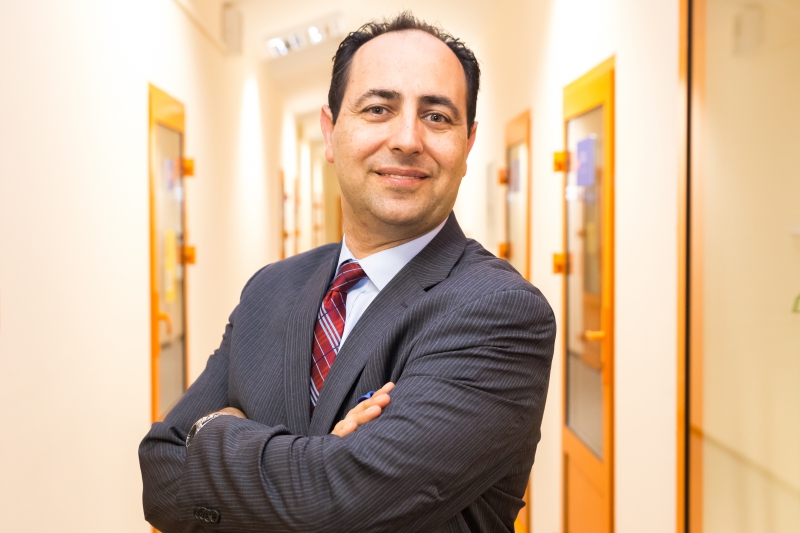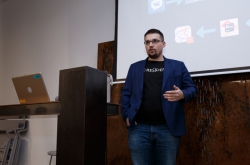Faris Alami is a recognized expert in business optimization. His experience in the field includes working with local and global organizations such as NGOs, 5-star hotels, marketing companies and retail chains.
Alami collaborated with several incubators and accelerators, consulting over 1,000 startups per year. He is a certified FastTrac Facilitator for Kauffman Foundation. He is also the head of the Global Trade Mission program for high schools students, where they learn how to launch a global technology company. Mr. Alami also mentors University of Michigan MBA students and serves on the board of several organizations.
During the meeting, he is pleasant to talk to and rather down-to-earth. He says a few words in Russian and jokes a lot.
To begin with, could you tell us about the lecture you are going to give our students?
The name of our workshop is “From Starting Up to Upscaling. How to Switch from Launch to Growth Mod?” We will talk about how to start a business and what shift must occur in the head of an entrepreneur in order for their business to develop.
What steps must one take to grow from a startup to a serious enterprise?
I hope you have a month for this discussion (laughs). This is certainly a big topic, in my experience, you do not have to be a big company to do serious business. As for the steps, they depend on what you want to achieve, on the reasons behind your startup’s launch. Some people just want to feel comfortable, they are happy doing what they like, working for themselves. Some people want to change the world, improve the lives of others while also getting financial, emotional or intellectual benefits from what they create.
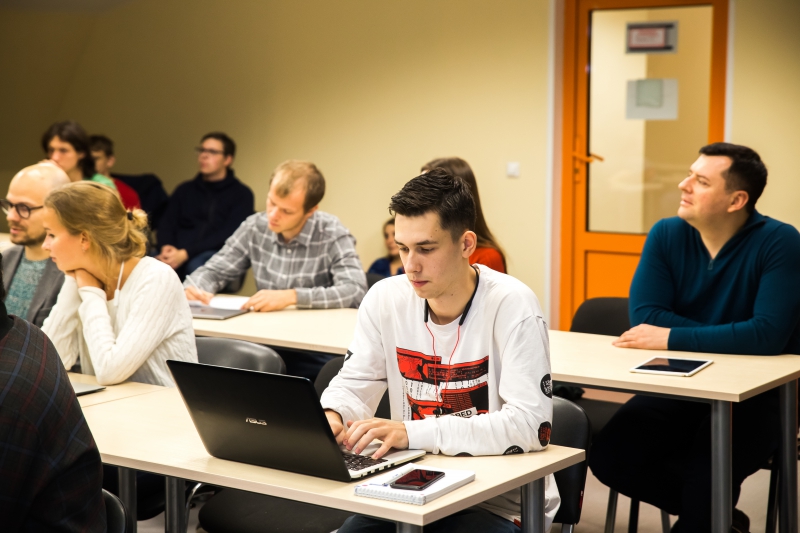
And yet you have seen many startups with great ideas, but I suppose most of them have long ceased to exist. Surely many had an idea that could change the world, and yet they failed. Why?
Well, the first thing to underline is that people do not always act the way they say they are going to. Second, many are not as flexible as the market requires when the demand changes. People start their business, intending to do ABCD, but get stuck on finding customers, because people want XYZ. Sometimes an entrepreneur can adjust, modify something, and say: “Yes, I can do XYZ.”
Then, sometimes we come to the market with a lot of expectations, but in reality our expectations do not match with what the market can offer us. When an opportunity arrives, you have to be able to see which of your experiences you can use.
Finally, the important thing is having a good management team. Its absence truly destroys the organization. Sometimes entrepreneurs cannot advance because they have not hired the right people to keep their business afloat. People often think that they can do everything themselves, but in reality ... yes, you can do everything yourself, but you won’t be able to do it right. You cannot do everything perfectly if you are the only one who does all of it. This is another reason why some fail and some go forward.
So, teamwork is a crucial factor that determines whether a startup will fail or will develop further?
There is a rule in the investor community, especially among those who invest in tech startups. It says: “Always invest in a first-class team with a second-class product, and never invest in a second-class team with a first-class product.” The first-class team that created an average, not particularly good or bad, product will most likely succeed. They will figure out how to improve the product, how to bring it to different markets, and what to do to make the product first-class.
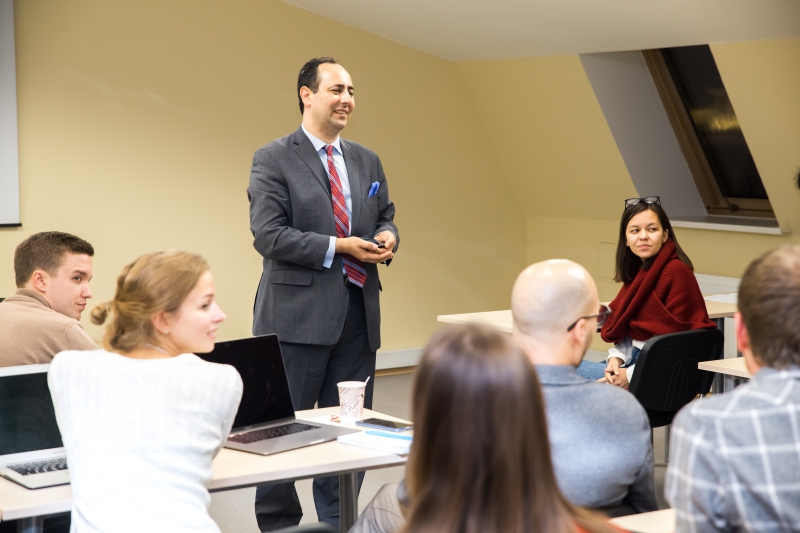
If you have a second-class team with a first-class product, it will always find a reason why someone does not want to buy their product. The thing is that they are an average team. So the problem is not the product, not the idea, but the team.
It turns out then that the so-called soft skills are more important for a startup than hard skills?
I would prefer to call them smart-skills – the ability to create a team, interact, create a good working space – all this determines whether the company will succeed or fail. Not every successful team had a leader who possessed such skills. However, the leaders knew what needed to be done to correct this shortcoming, what kind of people they needed to hire to close this gap.
A bit earlier you talked about the time of opportunities, in Russia we call this the “window of opportunity”. How can one know that their window of opportunity has opened or will be open in a year?
“Window of opportunity”? What a good way to put it! It is very difficult to pinpoint the exact time when the window of opportunity opens. That is why it is better to start something as a small enterprise, as it is easier to test and change things. The sense of the moment comes from a deep understanding of the market situation or the insight that can happen to you while studying the needs of the market, customers, or analyzing the state of the industry.
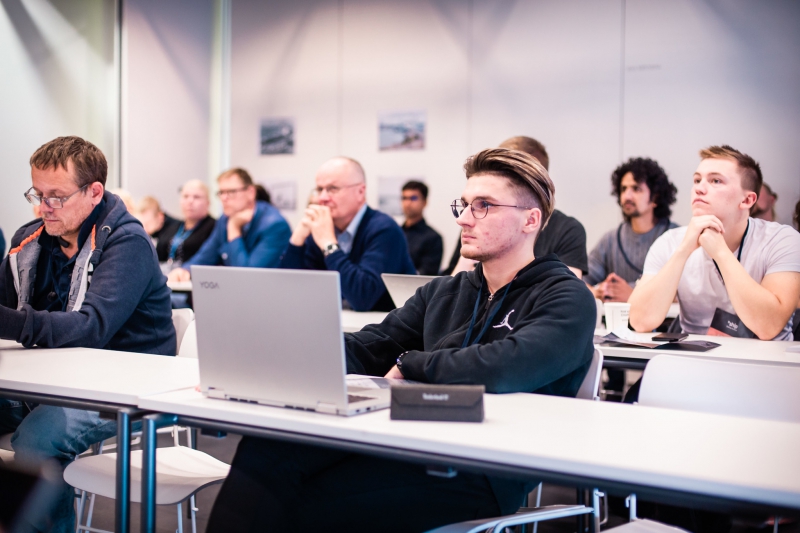
Does this window ever return?
Sometimes it doesn’t and sometimes is does, but it is a completely different window. And you need to be prepared for the shift that could happen. You can rarely see the window of opportunity reopen exactly where it was.
During your career you have worked in many countries, with different industries and companies. Is there a difference between creating your business in developed and developing countries?
Sometimes the differences are obvious, sometimes you feel them only when you start doing business. Sometimes in developing countries there is a lack of infrastructure – there may not be roads or broadband Internet. Whatever you do, you will be lacking something. So the differences between developed and developing countries can be huge.
However, what must be the same is the approach. You may need more time to start, you may have other needs for your business, but the approach should not be different. I mean, you should always think about sounding the market, getting feedback before applying the solution.
And yet, there are all kinds of investor clubs and business angel associations in developed countries, while in the developing ones, there are fewer people with money and even fewer willing to invest...
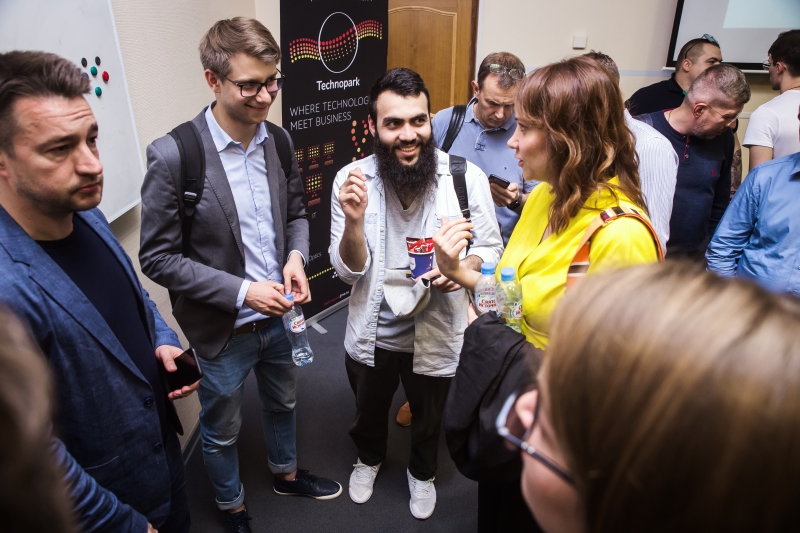
There are so many developing countries, and what have I learned from my stay there? All business angels’ groups and investor clubs are informal. There are just no formal ways to create them; there are no associations that unite them. Is is always something informal – at the kitchen table, in golf clubs, in riding clubs. I saw this happen in many countries: an entrepreneur has an idea, but there is no place to go and ask a business angel for money. But there is a friend who has a cousin who knows a friend of someone who has money and who may be interested. So formally there is no path that would lead to investors, but informally there are plenty.
So, in order to overcome the wall between the investor and the developer, you don’t break it, but rather surround it with a web of acquaintances and connections?
I would call it a bridge.
Let’s say I’m 23 years old and I have a revolutionary idea for a new multifunctional drone. How do I find an investor, how do I make this investor listen and believe in my idea?
Well, it’s good that we have five more hours to talk about it (laughs). Generally speaking, I have a couple of simple tips. First, you must understand which of the business angels to turn to. Because if I do not understand the economy of your industry, then I will listen to you, but I will not give you my money. In order to find such a person, you need to start looking: go to places like ITMO University’s business accelerator, and others like it. You need to explain what you do and why.
At the same time, it is important to know what people learn from what you say. In my experience, entrepreneurs cannot always articulate what they want to convey. So formulate the idea, make sure that it is understandable, make sure that the world knows about it, knows what you are doing. And take an interest in places like this business accelerator that we are talking in right now.
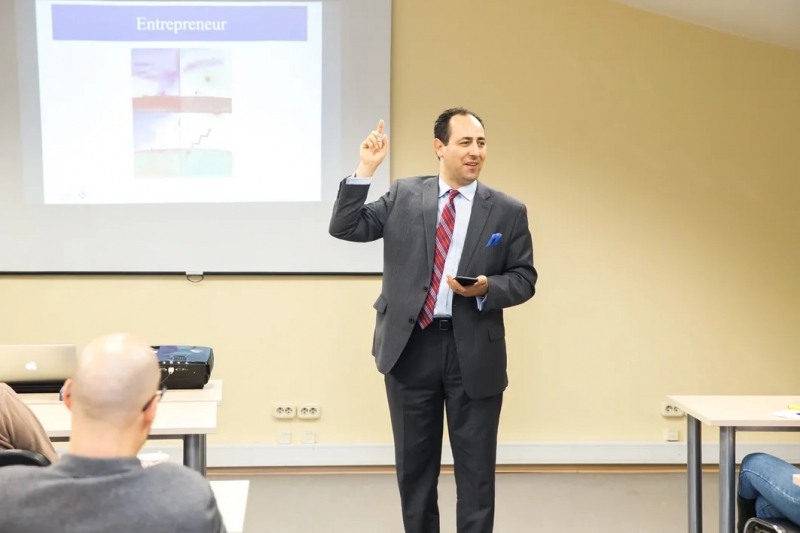
Is the investment market global or should you only rely on the investors from your country?
It is always better to start in your own country, because it is easier to find support if people understand your market. And then there are business connections, when you find necessary people from your city, you can get contacts around the country, and then around the world. It is like a ladder.
What would you say to start-up entrepreneurs who have found an investor, but are afraid that their idea might be stolen from them?
I witnessed one or two such incidents. And I heard about one or two, but it is not what actually happened in reality. In fact, the investor already had an idea and invested in it seven years ago, but the entrepreneurs decided that their idea was stolen, based on a single conversation with this investor. Be that as it may, investors do not invest in ideas; they invest in people. They invest in you, in a person, so that you turn your idea into reality.
If we are talking about proposing an idea to a large company that works in the same industry, then this is another matter. Many such organizations have special platforms where you can offer your ideas. They can protect you and themselves from such a scenario. But I am not ready to talk about this too specifically, it is better to turn to a lawyer in such a matter.
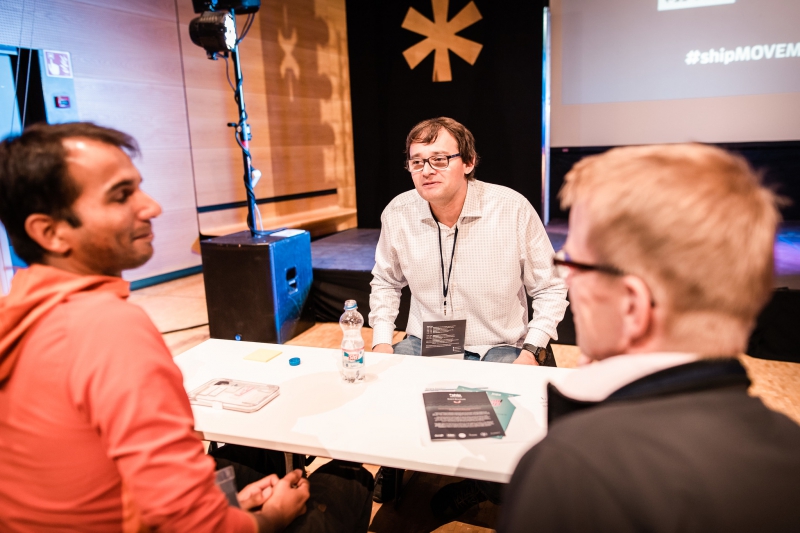
Finally, could you tell us how an organization, say a university, should act in order to support startups and at the same time avoid a situation where they do not grow into independent businesses, but become its laboratories and departments?
I don’t know a lot about Russia, but during the week of my stay here I learned more about this topic. It seems to me that a business incubator and a technopark were created to help people start their own business and the necessary infrastructure is already there so that students and entrepreneurs can come there and start their own business.
Translated by Pavel Vorobyev
